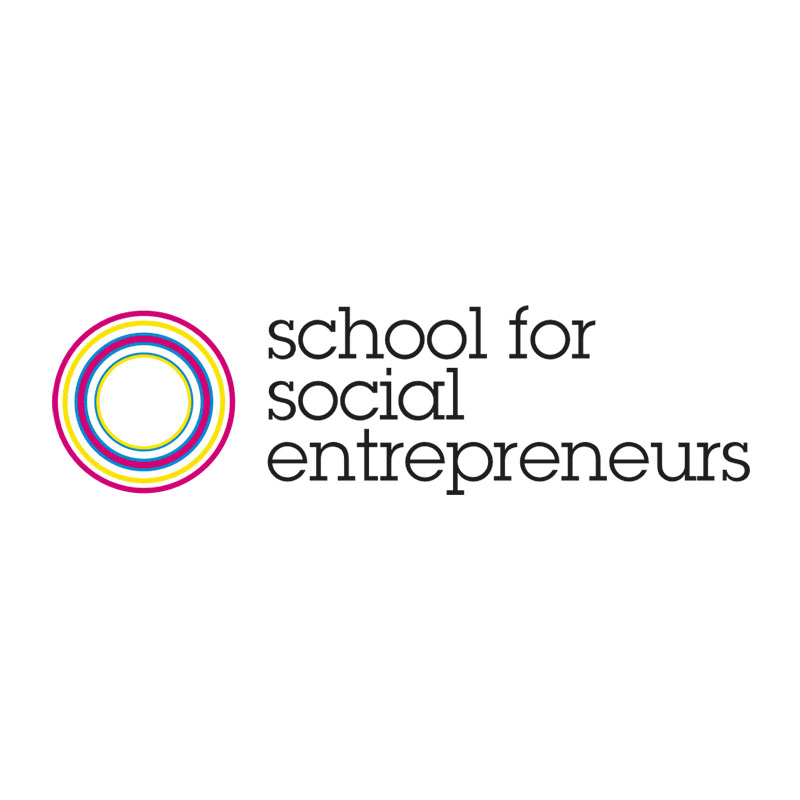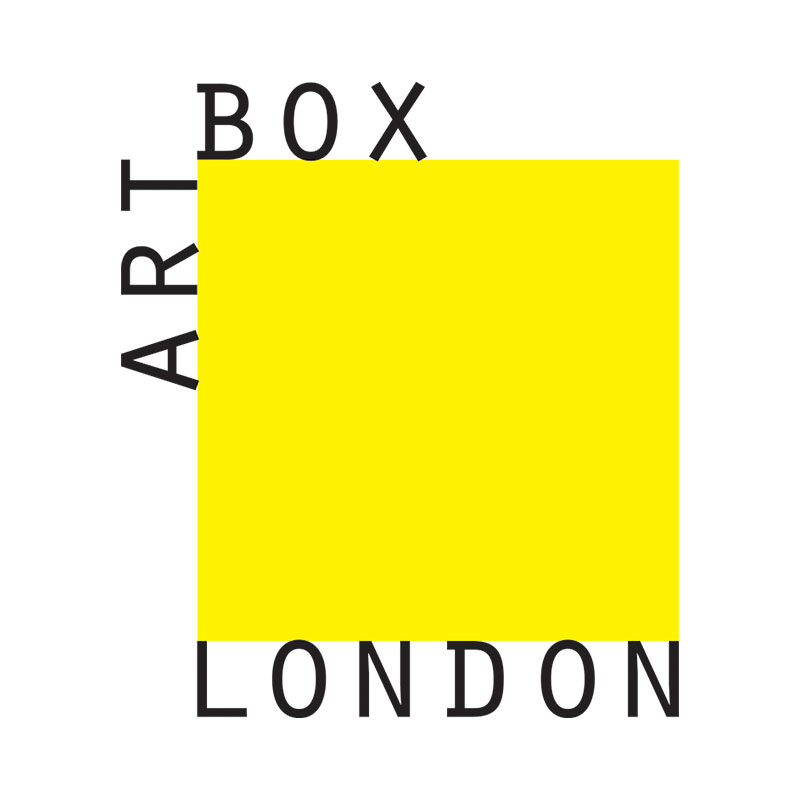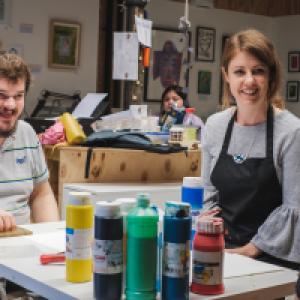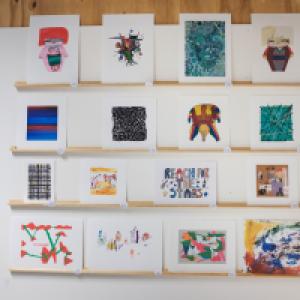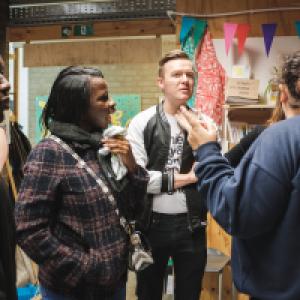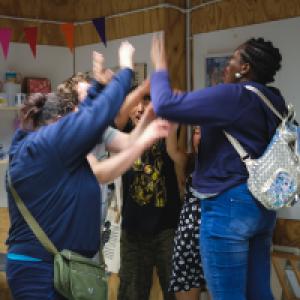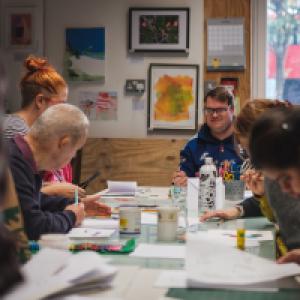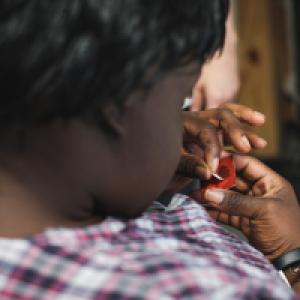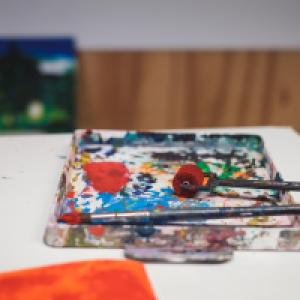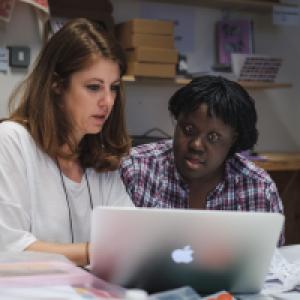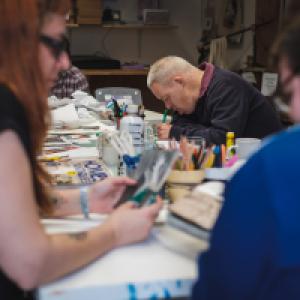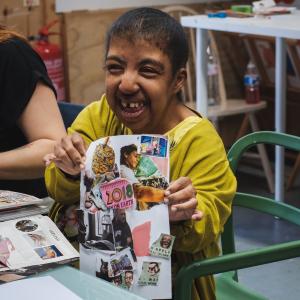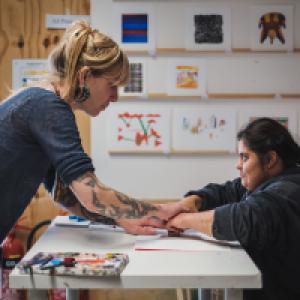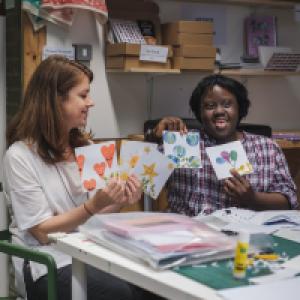Social Challenge and Innovative Solution
People with learning disabilities often suffer from social isolation and a lack of independence. Artbox helps them feel happier, be more independent, and become more visible and connected within their local community. It engages them to take part in weekly art workshops, where they work with volunteers to try techniques such as collage, painting, photography, etc. It also arranges regular trips to art galleries and libraries in central London, so that the artists can get inspired but also feel more confident getting around in the city.
Artbox organises exhibitions to showcase the artwork and give it the visibility and recognition it deserves. The artists also attend these events, giving visitors an opportunity to meet with and get to know the artists and their work. This helps change people’s perceptions of learning disability, and challenge stereotypes.
The artwork is sold both on Artbox's website, and in person at events and art fairs. Artbox London is both a registered charity and social enterprise. This means that all of its profits go back to supporting people with learning disabilities.
Key Impact Figures
Investing for Impact
How it started and support provided
Artbox London’s founder Madeline Alterman first attended a short course with the School for Social Entrepreneurs (SSE) in 2010-2011. She then applied to the Lloyds Bank Social Entrepreneurs Scale Up Programme, run in partnership with SSE and jointly funded by Big Lottery Fund, but Artbox wasn’t quite at the level of maturity needed to access the programme.
In 2015, SSE invited her to join their new pilot for growing organisations: the Lloyds Bank Social Entrepreneurs Trade Up Programme, run in partnership with SSE and jointly funded by Big Lottery Fund, which pioneered the use of Match Trading grants alongside a one-year learning programme and mentoring. Invented by the SSE, the Match Trading grant is a financial instrument that matches increases in sales growth pound for pound. This means that for every £1 that Artbox increases its income from trading compared to the previous year, SSE grants the social enterprise £1. It creates additional incentive for the social enterprise to generate its own revenues from its trading activities, while helping it grow faster and become less dependent on traditional grant-making or fundraising.
The Match Trading grant for Artbox was set at up to £7,000 over the course of one year. As a result, Artbox boosted its annual income from trading from £6,100 to £15,500 in just one year (156% increase). Its income from trading rose from 13% to 28% of its total revenues by the end of SSE’s one-year support programme.
Theory of Change, Impact Strategy, IMM
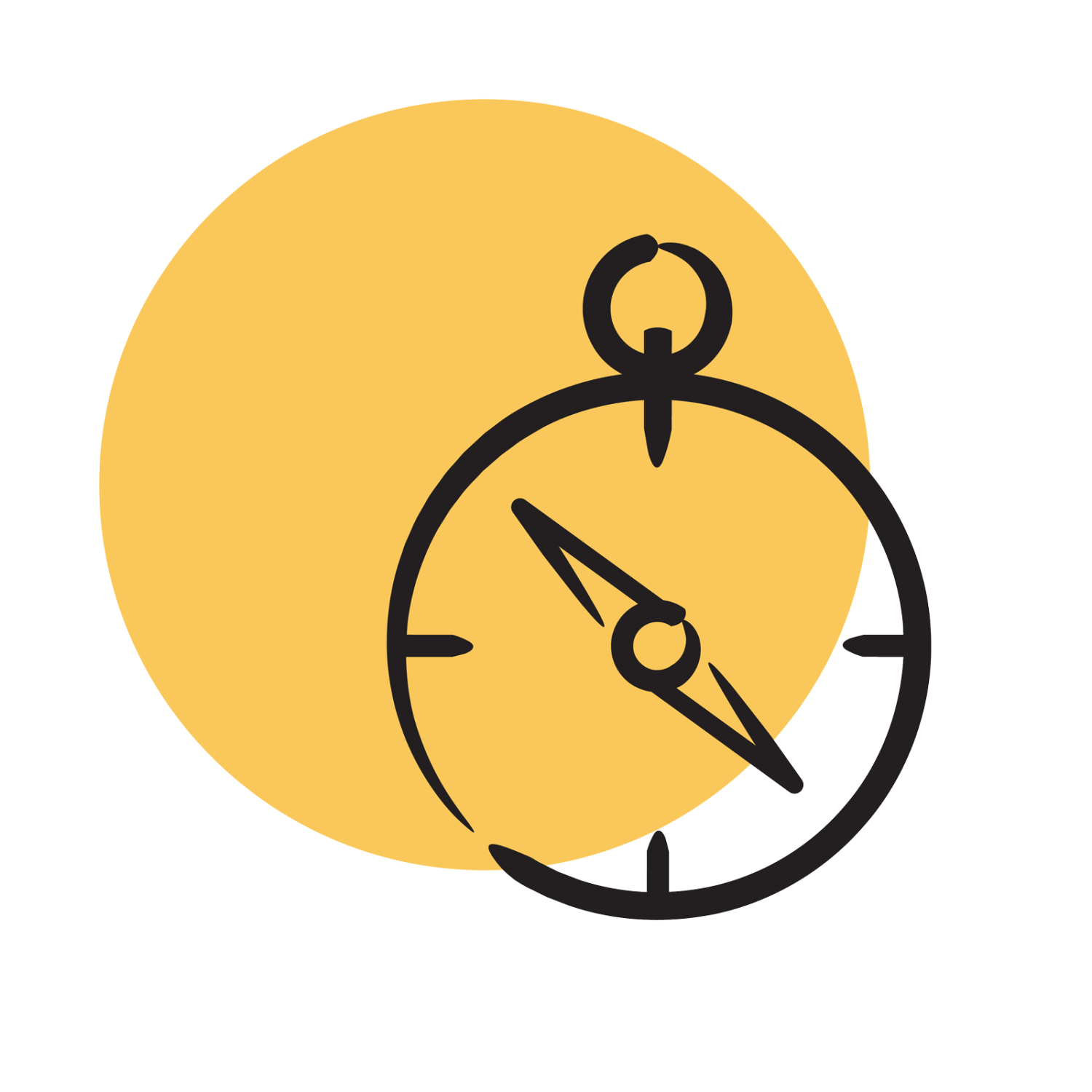
Theory of Change, Impact Strategy, IMM
Financial management
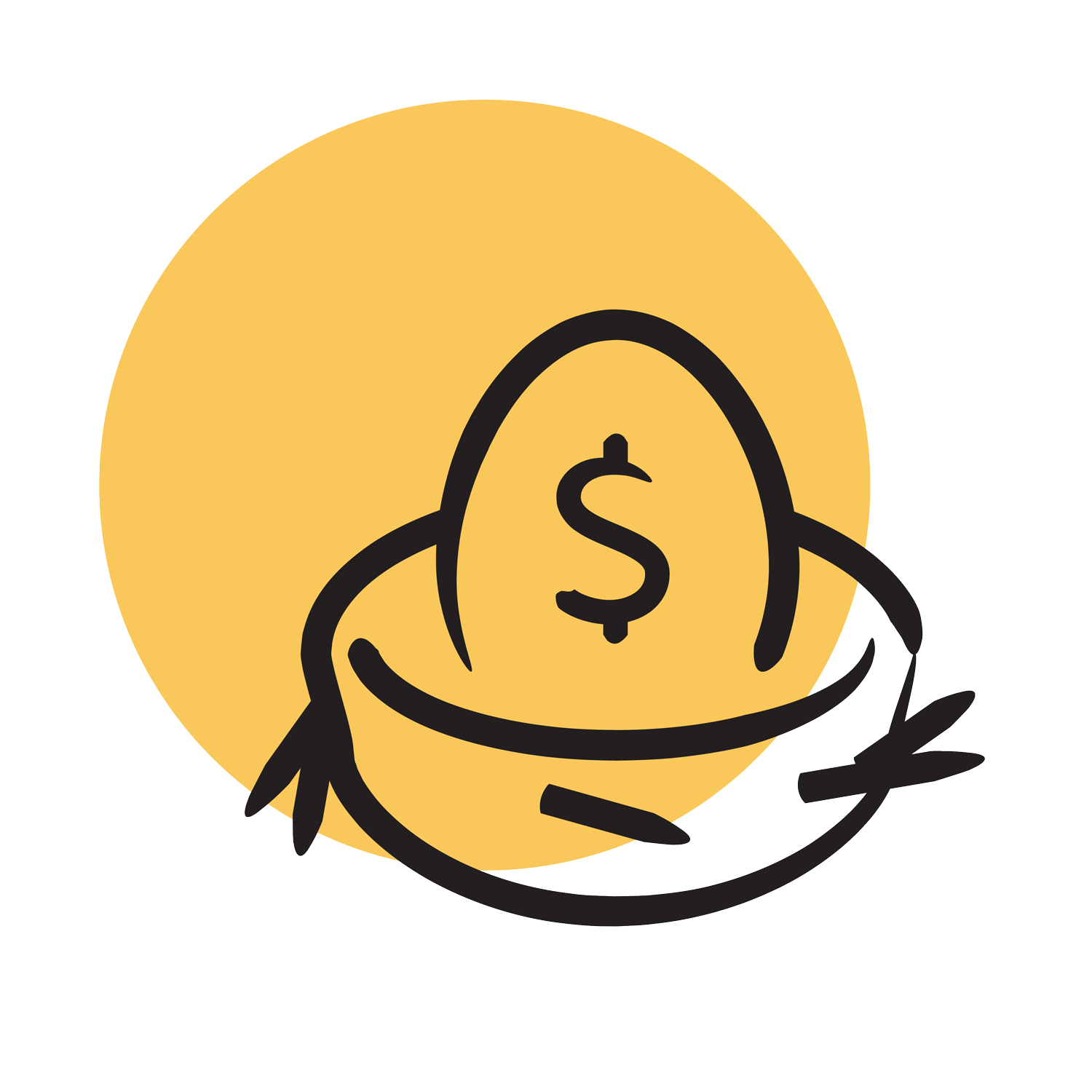
Financial management
Revenue strategy
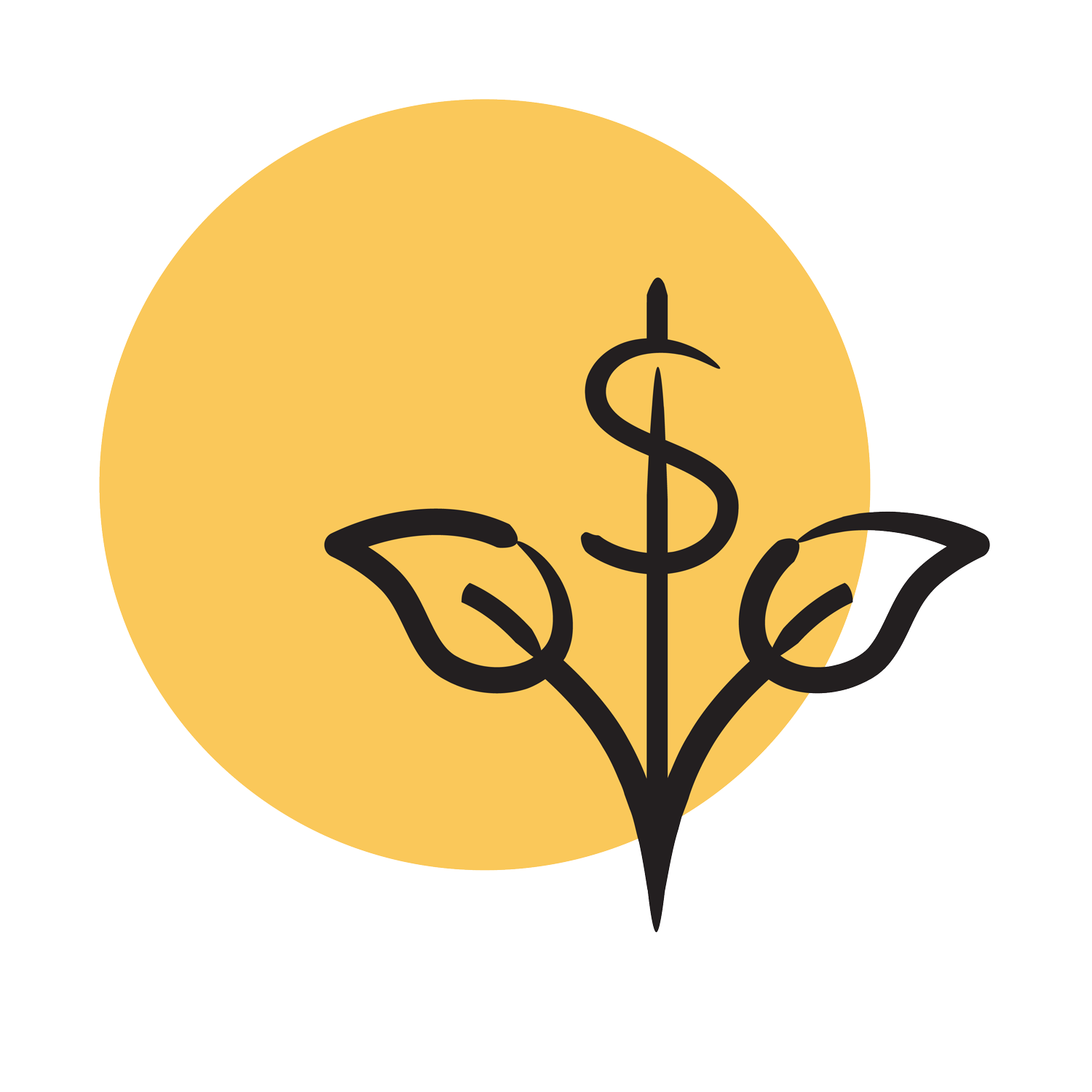
Revenue strategy
Governance
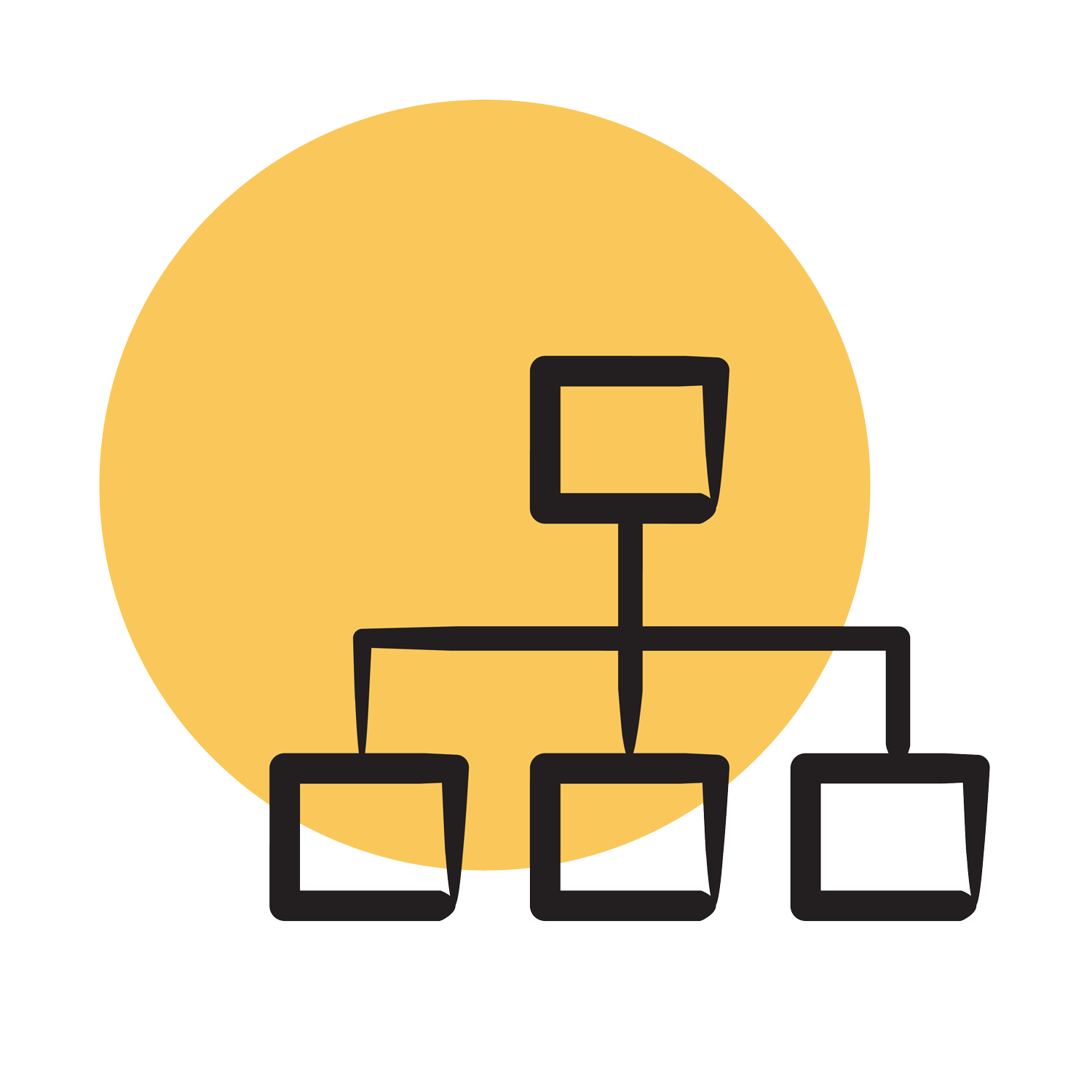
Governance
Management team and CEO support
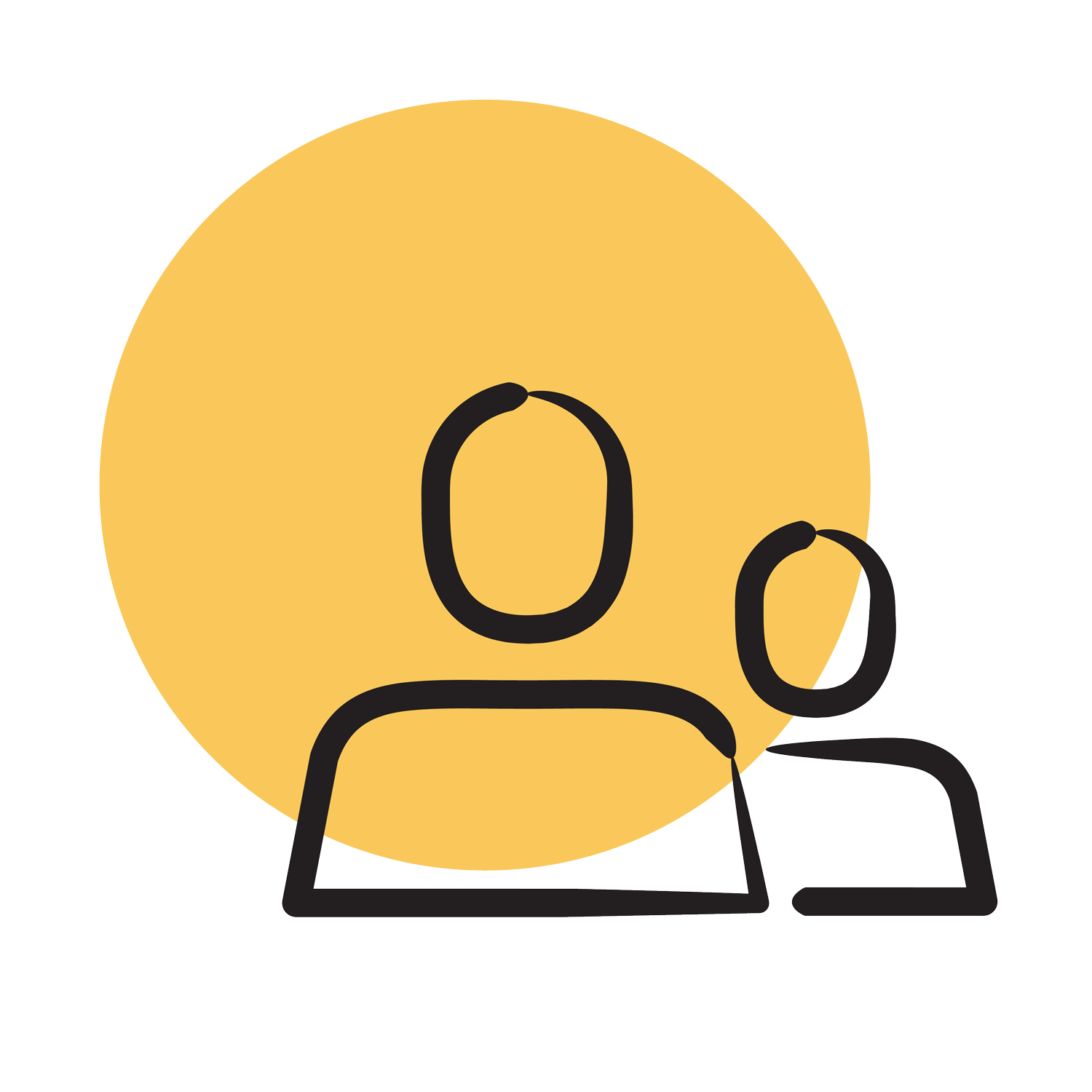
Management team and CEO support
Access to networks
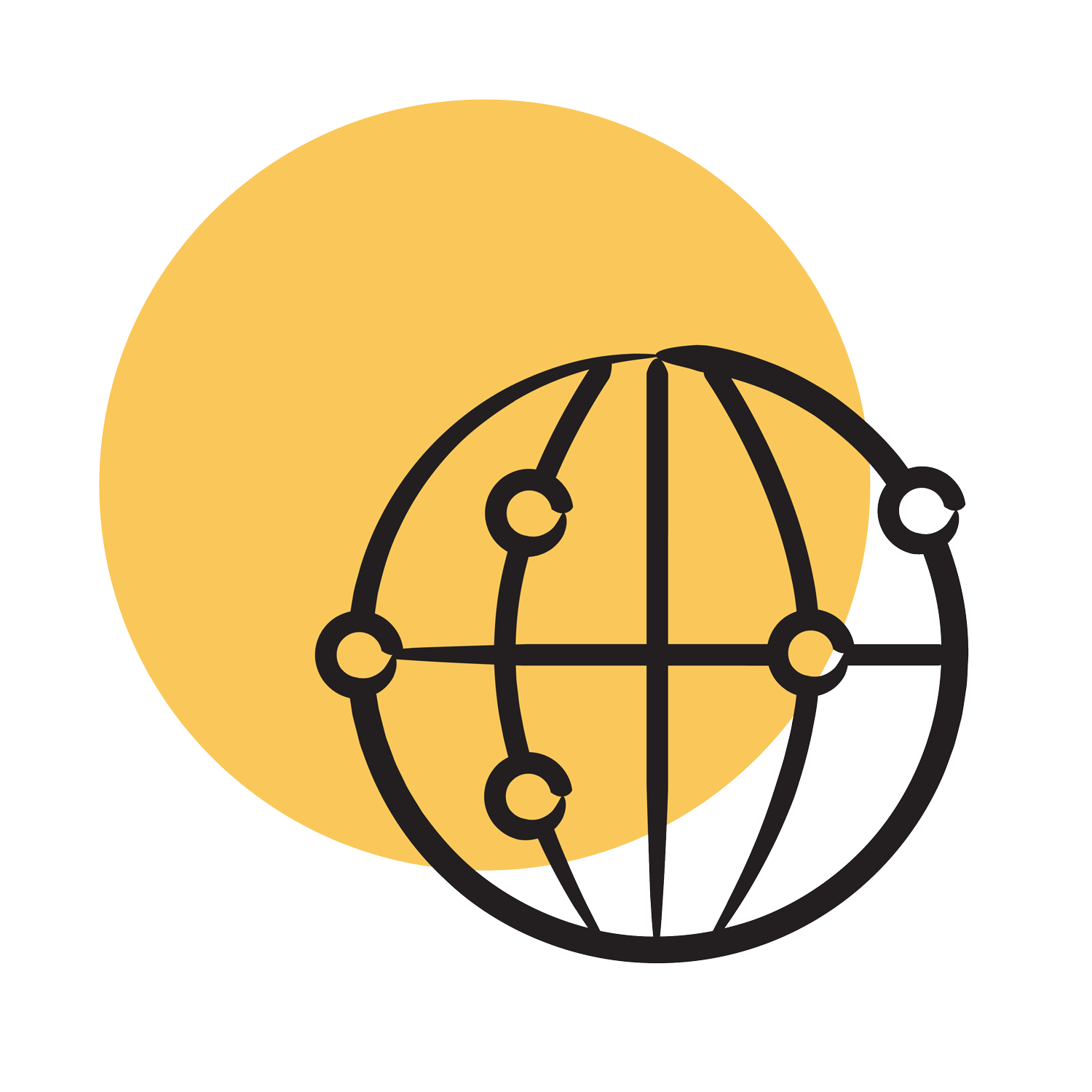
Access to networks
Business planning

Business planning
Marketing

Marketing
Operational management
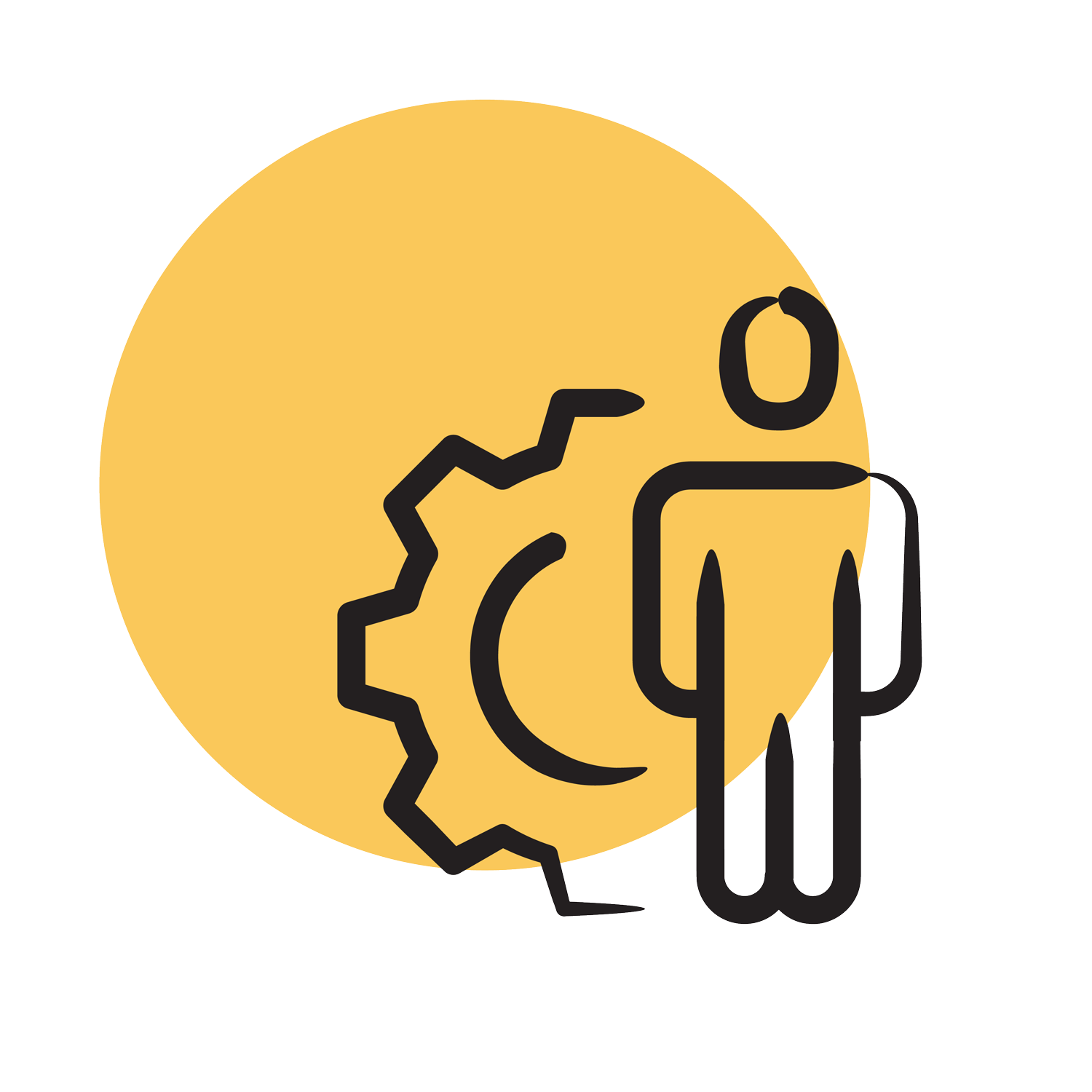
Operational management
As part of the programme, SSE offers 14 days of learning to groups of 20 selected social entrepreneurs. The learning is structured on four dimensions:
- Developing networks: peer learning, networking, the social entrepreneurs get to know other social entrepreneurs
- Business and technical skills: marketing, sales techniques, accounting practices, networking skills
- Leadership and personal development: confidence, emotional resilience
- Social impact practices: how to measure their impact. SSE measured progress and impact quarterly, and one year after the support programme.
Each group support each other and speakers from all backgrounds are invited to share their own experience and give advice.
Since the end of the Trade Up Programme, Madeline has attended a couple of SSE’s short courses, on crowdfunding and working with corporates. Moreover, as an SSE Fellow, she has access to SSE’s network and will soon gain access to an online platform to give its fellows the opportunity to connect, keep in touch with SSE more easily, but also to follow up on their progress once their learning programme is over.
Impact Measurement
From Artbox London’s Impact Report 2016/2017:
| Outcome | Indicator | Results |
| a) Improved social wellbeing | % Artbox artists who experienced positive emotions through Artbox | 100% |
| % who developed friendships within the studio | 96% | |
| b) Improved confidence and self-esteem | % who report greater self-esteem | 91% |
| % who call themselves an artist | 71% | |
| % who feel more confident in galleries | 90% | |
| c) Earning money and being ambitious | % who received a payment from print sales | 100% |
| d) Increased independence | % feel more independent | 77% |
For more information and more indicators on Artbox London’s social impact: http://www.artboxlondon.org/impact
On the VPO’s side, the School for Social Entrepreneurs also collects data both on social impact and financial situation (e.g. proportion of income coming from trading and non-trading, overall income, profit/loss and surplus generated by the organisation) to see how the SSE Fellows evolve during and after their programme. They look at the lessons learned from their own programmes, so that SSE’s learning managers can adapt them if necessary.
What they Think
What's Next?
Artbox has recently acquired its own studio and has more than doubled the amount of studio sessions. It has opened new sessions on enterprise and art, mindfulness and art and sessions led by professional artists, who will introduce their work and techniques. The social enterprise is also trying to sell more artwork and products through their website.
The project is now being replicated as “Artbox Frome” by another social entrepreneur in Somerset. The SSE also supports Artbox Frome through the Lloyds Bank Social Entrepreneurs Start Up Programme.
Thanks to SSE’s support and programme and Artbox’s remarkable results, its board now sees the potential of the trading-based model for the organisation and has set a target of at least 40% of income coming from trading by 2020.
More videos
The trailer of our success story video:


